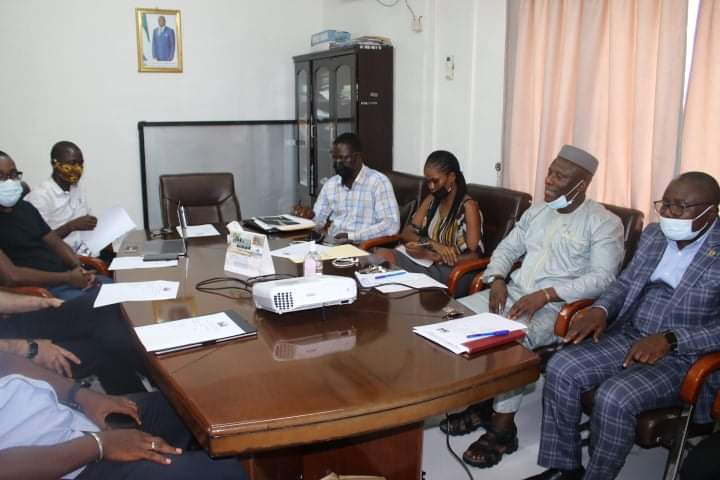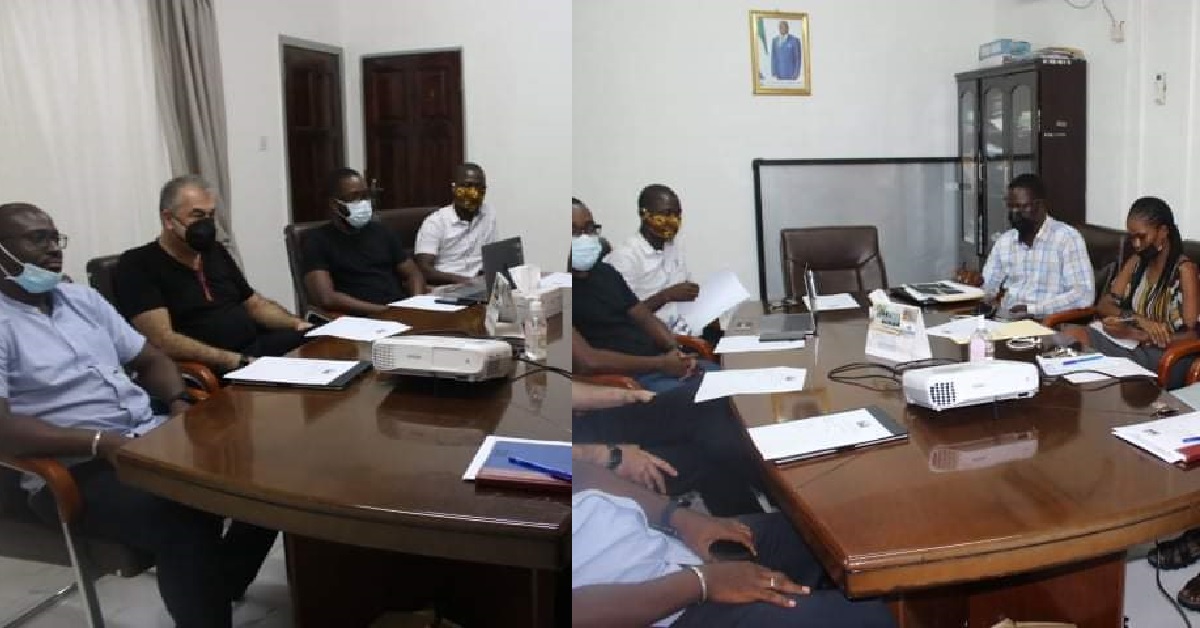The Ministry of Technical and Higher Education (MTHE) has had an engagement with Zoodlabs (a technology company operating in Sierra Leone) with a view to deploying over 700km of metro fiber network to cover the entire Freetown, with vectorized coverage of major communities in the city. The meeting was held at MTHE’s Conference Room, New England Ville.
The deployment of metro fiber broadband network focuses on setting the stage for Freetown to be smart city ready as well as ensuring that higher learning centers are selected along the path of the fiber map to provide connectivity to the universities and Technical, Vocational, Education and Training (TVET) environment.
In his opening statement, MTHE’s Director of Technology, Mr. Victor Sesay, welcomed the entire team from Zoodlabs, stating the Ministry’s readiness to work with them in a bid to move the process forward. He noted that there is need for MTHE and Zoodlabs to develop a Joint Terms of Reference (ToR) to identify the barest minimum that could be given to the higher learning institutions. He anticipated that the project’s benefit will be enormous, considering the steps taken by Zoodlabs so far.

MTHE’s Director of TVET, Dr. Victor Massaquoi, envisaged the project to be a win-win situation for both Zoodlabs and the country’s educational institutions. “The model we are going to develop hopefully is going to be reflected in the content of the MOU. It is for you to benefit by making profit but at the same time you provide the service that the students deserve,” he mentioned.
The Chief Operations Officer at Zoodlabs, David Kpakima, said that their core strategy is not just to stabilize the main sourcing infrastructure but also to take the fibers to the communities.
He mentioned that 16 communities will have fiber in their homes and businesses for the first time through the project. According to David Kpakima, critical infrastructures and critical enabling environment should also be fiber-ready, and therefore, they had selected higher learning centres for the provision of connectivity to the universities and the TVET environment.
“By January, we will connect the first community, and by mid of next year, we would have completed the whole vectorization of Freetown… fiber should be available in every single home just like electricity…we see this as an opportunity to be able to build another layer of technology and take it to the community,” he said.











